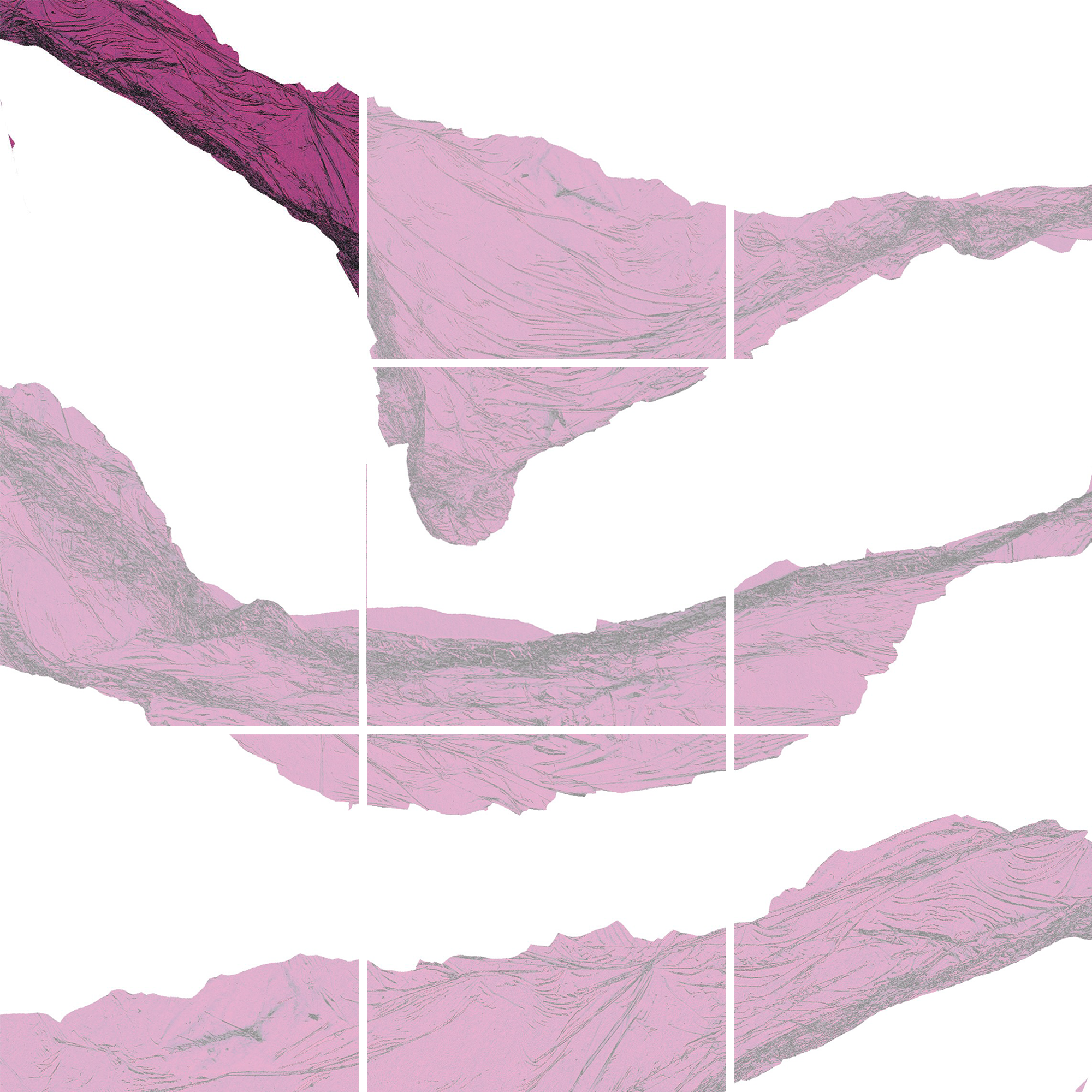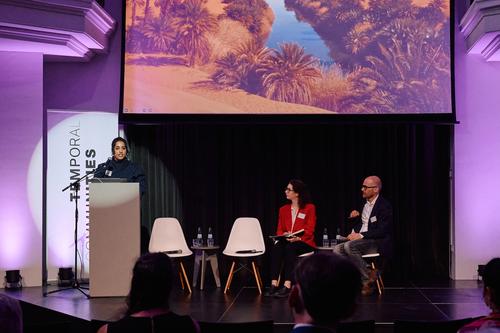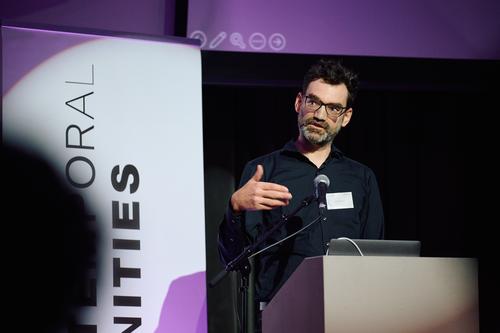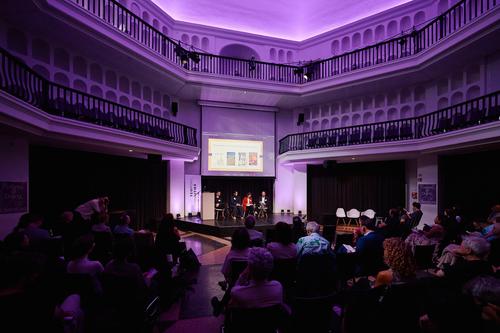9 July | Panel: Hierarchies of the Past, Entanglements of the Future
Part of the EXC 2020 Annual Conference 2025 "Futures of Doing Literature", 9–11 July 2025.
By way of short presentations and a moderated discussion, the panel examined the role of storytelling in envisioning and moulding futures, particularly through the lens of climate fiction and ecocriticism. Linking to questions of global inequalities and hierarchies that continue to shape our world via extractivism, colonial/neo-colonial endeavours and their manifold repercussions, the panel aimed to highlight the ability of literature to negotiate visions of the future and stimulate critical reflection on humanity's relationship with the environment in a postcolonial world. The contributions explored how narratives address ecological and societal challenges and provide imaginative frameworks for understanding and responding to crises by questioning hierarchies of the past and constructing a shared future.
Chair: Hanan Natour (Research Area 3: Future Perfect) and Frank Fischer (Research Area 5: Building Digital Communities)
Image Credit: S. Messner 2025 for EXC 2020 using a photo by Valeria Reverdo on Unsplash.
Re-reading Abdulrahman Munif's "Cities of Salt" in the Age of Climate Collapse
Suja Sawafta (Arabic Studies | University of Miami)
In the Arab world, it is often said that there are signs that indicate the end of the world, or at least the transition from one world into another: a fire in Yemen so big that it can be seen in Syria, an age where metal will speak, where structures that scrape the edge of the sky are built by barefoot Bedouins, and a reality where one is unable to easily distinguish truth from falsehood. It is no surprise, then, that the native tribes of Arabia feared that it was the end of the world when bulldozers arrived at the coasts of the Arabian Peninsula; their oases compromised, the trees uprooted, and dunes covered in pavement. In Abdulrahman Munif's Cities of Salt, a society is depicted on the brink of change just as fossil capital and its machinery take over the fictional oasis of Wadi al-Ayoun, transforming it into a petroleum refinery site. Munif's epic quintet famously challenges both the foundational narrative of the Kingdom of Saudi Arabia and depicts a community that resisted this new reality. In this, the series provides its reader with a guidebook that remains ever-relevant in the age of forest fires: It allows us to glean lessons from literature and illuminates the power of impactful social mobilisation, encouraging us to challenge fossil capitalism and its structures, and to turn to community as nature is destroyed.
Embracing Extinction: Pessimist Epistemology and Lost Futures
Mark Schmitt (English Cultural Studies | Humboldt-Universität zu Berlin)
Recent years have seen an increasing interest in pessimist philosophy and its diversification, from afropessimism to queer pessimism, antinatalism and eco-pessimism. As a philosophy of time, pessimism points to the lost futures haunting the present – whether it is the (no-)future of the unborn child, the (no-)future and the being stuck in the present of Black and queer bodies and subjects, or the death of species, the Earth and even the universe. The presentation illustrated how pessimist narratives of disruption in philosophy, literary fiction and cinema offer epistemological approaches that allow us to know time and humanity differently, taking non-being and the ahuman as its horizon of futurity.
The Sahara Desert: A Crossroads of Colonial Encounters and Re-imagined Futures (online)
Amina Zarzi (Francophone Postcolonial Studies | University of Oxford)
For time eternal, the Sahara has informed the imaginary of Muslim travellers, local inhabitants and Europeans, showcasing the legendary desert's liberating potential but also denouncing the constraints inside the walls of the ksour. It is in light of these paradoxical representations that this contribution discussed the ways in which Algerian literature by Malika Mokeddem and Yasmina Khadra (both born in the Algerian desert) negotiates the complex dynamics of the desert against the backdrop of cross-cultural encounters in a way that both resists and celebrates the presence of European travellers and writers such as Isabelle Eberhardt and Charles de Foucauld. As a result, the Sahara acts as a locus where born nomads like Mokeddem and Khadra re-imagine their cultural identities in multicultural societies, remembering and reshaping colonial figures in postcolonial times.


